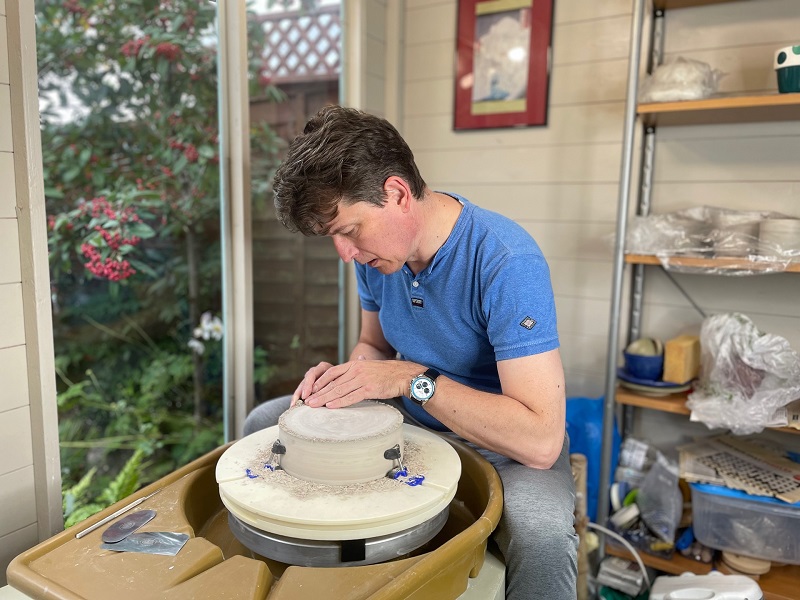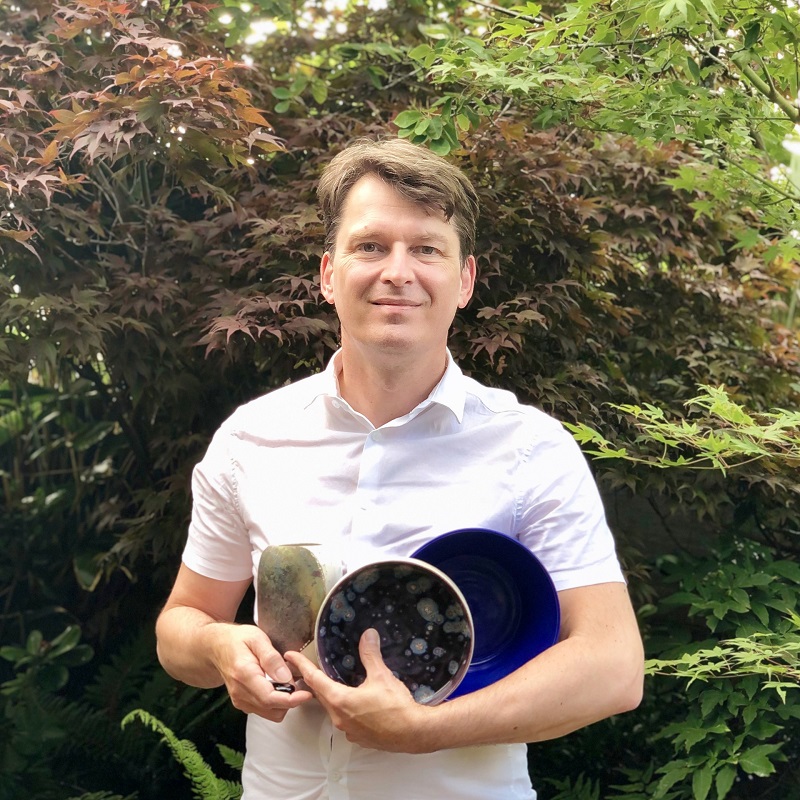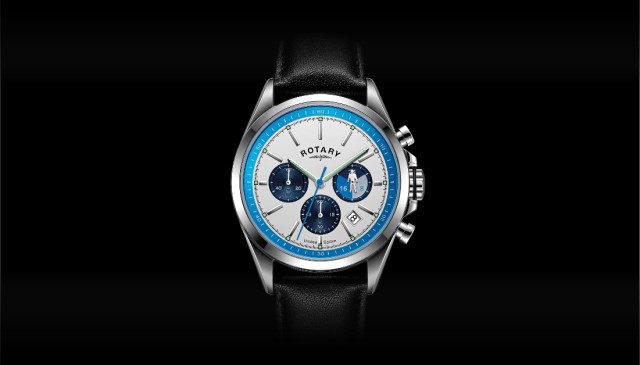Real Stories
18 Nov 2021“It was a lifeline for me”: How pottery helped one man fight prostate cancer
As part of our More Time series with Rotary Watches, we speak to Bruno Vinel about his love of pottery and how it helped him overcome prostate cancer and depression.
We’ve partnered with Rotary Watches to raise funds for life-saving research with a limited edition 25th anniversary watch, and a series of interviews, More Time.
Next up is Bruno Vinel, whose love of pottery gave him hope and comfort during his treatment for prostate cancer.
__________________________________________
Hi Bruno! Tell us how you got into pottery.
I tried pottery in April 2018, when I was out of work and suffering from depression, after being diagnosed with prostate cancer at 50, a prostatectomy, 38 radiotherapy treatment sessions, and nearly two years of hormone therapy (depression is one of its side effects).
Pottery was the right thing for me to do. I spent half of my time making pots while I was job searching the rest of the time. Making pottery was a real lifeline for me in that difficult period! It kept my mind busy, and I enjoyed developing my artistic side so much.
In September 2018, I was diagnosed with a Gastro-Intestinal Stromal Tumour (GIST) in my stomach, unrelated to prostate cancer. It was successfully removed by surgery two months later. Once again, pottery was an excellent way for me to feel better through this challenging time.
Time is a real constraint and a necessity for pottery. For instance, vessels need to dry slowly over several days. It is particularly challenging when I am preparing for an exhibition, as I am now. In the future, I may consider working part-time to continue developing my art.

How do you feel when doing it?
Pottery is a very relaxing craft. It could be described as a mindfulness activity. Using both hands and the contact with clay brings me back to some childhood experience with plasticine. Making pots requires repetitive movements, and it's very calming.
The outcome is very satisfying and after a good session, I feel more relaxed and positive. I would recommend it to everyone who feels stressed or needs to escape the difficulties of going through therapy.
I consider my pottery activities part of my treatment to fight prostate cancer!
Does your treatment ever affect your pottery?
Five years after being diagnosed and after three and half years of treatment, my consultant is still monitoring me regularly at the University College London Hospital. Although two PSMA PET scans didn’t show any sign of a new tumour growing in my body, which is ‘bloody good news’. Over the last few months, my PSA was rising, and I went again on intermittent hormone therapy treatment to keep it under control. I am concerned that I’ve not yet gotten rid of prostate cancer, which generates stress.
Following the recommendation from the UCLH integrative cancer care consultant, I am doing my best to support my body: eating very healthy, exercising, keeping my stress level low, sleeping well, and staying positive. I consider my pottery activities part of my treatment to fight prostate cancer!

Is there something you’ve created that you’re particularly proud of?
My series, Examinations: an exploration of ceramics and health, was inspired by my prostate cancer experience. It’s the vision of cancer spreading outside my prostate gland, the radiotherapy treatment, and the Gastro-Intestinal Stromal Tumour, a rare form of sarcoma cancer, growing and removed from my stomach in 2018.
I had to make a series of pieces inspired by my experience with cancer. It was my first experience creating a series of sculptures inspired by my life. Making these vessels helped me overcome the traumatic experience of living with cancer.
See more of Bruno’s pottery and find out about his latest exhibition on Instagram.
The 1IN8 watch
Rotary has proudly designed a limited edition chronograph timepiece in celebration of Prostate Cancer UK’s 25 years of progress. Limited to only 1,000 pieces, Rotary Watches will pledge 10% + VAT from the sale of every 1IN8 watch to fund research that will save lives.


